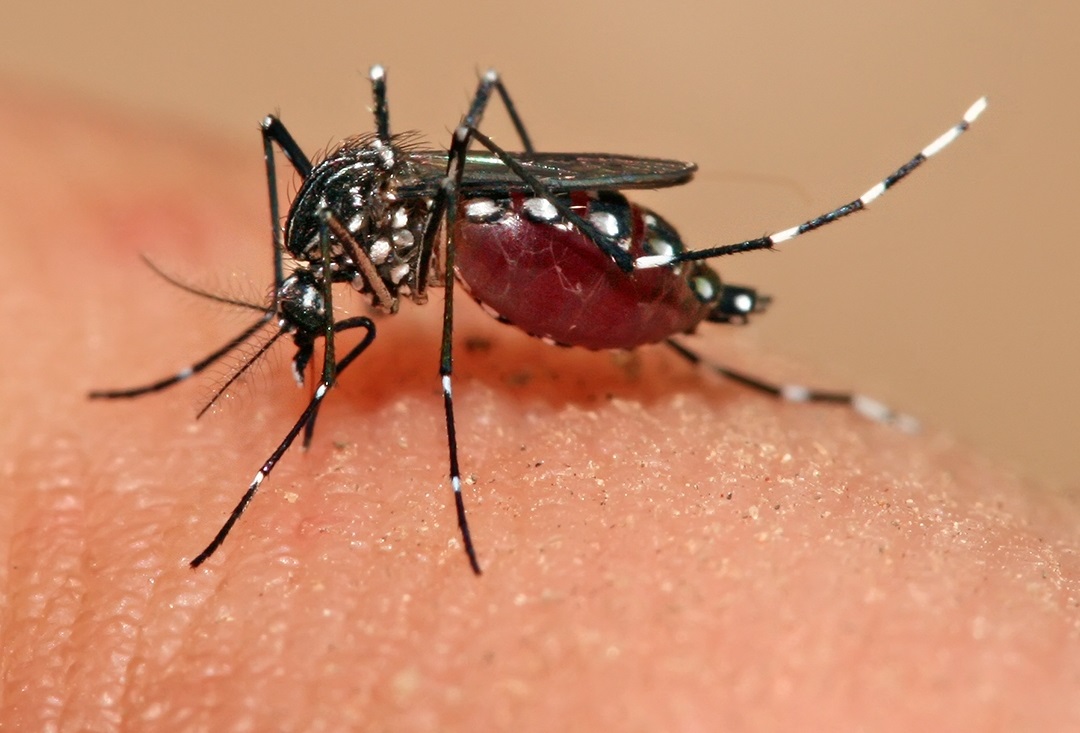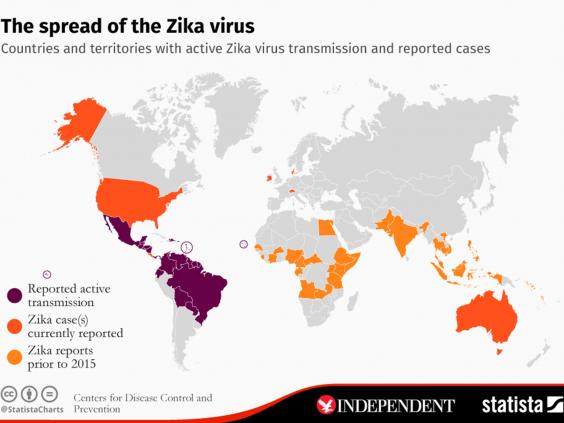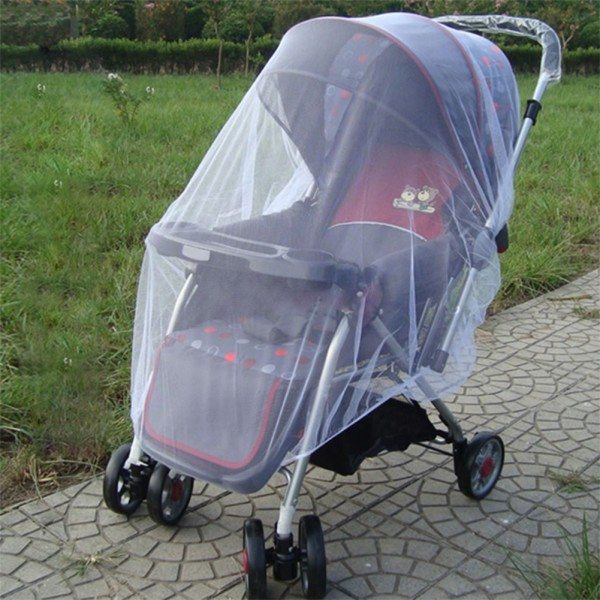This year, amid the widest Zika outbreak in U.S. history, preparing for Mosquito Season is more important than ever before.

limocollege.edu
Little is known about the nature of the Zika virus, but it is spreading rapidly throughout the Americas and likely to reach other parts of the world through infected travelers. The World Health Organization has declared it a Public Health Emergency of International Concern.
According to the Centers for Disease Control and Prevention, 618 travel-related cases of the Zika virus were reported in the US between Jan. 1, 2015 and June 1, 2016.
The CDC reports that as many as 4 million people could be infected with the Zika virus by the end of 2016.
About the Zika Virus
Symptoms usually include mild fever, rash, joint pain and red eyes. The incubation period (time between getting infected and showing symptoms) is not known. The virus stays in the bloodstream for at least a week, according to the CDC. Zika virus can be sexually transmitted, and it’s not known how long the virus stays in semen.
The Zika virus is especially dangerous to pregnant women whose babies can suffer severe birth defects like microcephaly, which is characterized by an abnormally large head and brain. Microcephaly can also trigger other developmental defects in babies. In severe cases, these infants die shortly after birth.
Brazil saw its first reported case of the Zika virus in May 2015. The second half of that year saw microcephaly cases skyrocket. Pregnant women should avoid traveling to countries undergoing outbreaks of the Zika Virus.

The Independent
Where is the Zika Virus Most Prevalent?
The rapid spread of the Zika virus in certain places has forced the CDC to issue travel notices for several locations primarily in South America and the Caribbean. While cases have been reported in the U.S., Mexico is the only country in North America currently facing a Zika epidemic.
Several cases have been reported in the US, but not enough to warrant travel warnings.
Visit the CDC’s website for the most up-to-date travel warnings regarding the Zika virus.
No vaccine exists for the virus, so prevention is essential.
Preventing Mosquito Bites
- Stay in air-conditioned rooms and install mosquito-resistant screens on windows
- Sleep under a mosquito net. The WHO recommends you use a WHOPES-approved net that has 156 holes per- square-inch and long enough to tuck under the mattress.
- Eliminate all sources of standing water as they are breeding grounds for mosquitos
- Apply insect repellent as directed on clothes. The CDC recommends you use Environmental Protection Agency-registered products with ingredients like DEET, picaridin, IR3535, oil of lemon eucalyptus, or para-menthane-diol.
- If using sunscreen, apply it before you apply insect repellent
- Avoid scented skin products
- Wear pants and long-sleeved shirts. If you can bear it, tuck your pants inside your socks. Try using light-colored clothing as mosquitos are thought to be attracted to darker colors
- Treat clothing with Permethrin, which can protect against mosquitoes. Use on clothing only.
Pregnant women should follow these precautions vigorously especially if they must travel to places undergoing outbreaks of the Zika virus.
If returning from a country with heightened Zika-virus activity or have been diagnosed with the infection, follow these steps for at least three weeks to avoid infecting the local mosquito population and thus putting others at risk.
Protecting Children
- Do not use insect repellent on babies younger than 2 months old
- Cover crib, stroller and baby carrier with net
- Do not use products containing oil of lemon eucalyptus or para-menthane-diol on children younger than 3 years old.
- The CDC suggests you apply insect repellent to your hands before rubbing a small amount on your child’s face while avoiding the eyes and mouth

aliexpress.net
Protecting Your Home from Mosquitos
- Once a week: Empty and scrub anything containing water (female mosquitoes lay hundreds of eggs on the walls of water-holding containers, where they stick. Only scrubbing would remove them.)
- Tightly cover water storage containers (For containers without lids, use wire mesh with holes smaller than an adult mosquito.)
- Use larvicides to treat large containers of water that will not be used for drinking and cannot be covered or dumped out.
- Use outdoor flying insect spray where mosquitoes rest. Mosquitoes rest in dark, humid areas like under patio furniture, or under the carport or garage.
- If you have a septic tank, repair cracks or gaps. Cover open vent or plumbing pipes. Use wire mesh with holes smaller than an adult mosquito.
Remember that the Zika virus can be sexually transmitted. Take steps to ensure the virus doesn’t spread through sex.

Shutterstock
Preventing Sexually-Transmitted Zika Virus
Abstinence is obviously the best way to prevent acquiring Zika virus through sex.
To avoid transmitting Zika virus sexually, the CDC recommends you use condoms during sex from start to finish whether it’s vaginal, anal or oral. It’s not known whether an infected woman can transmit the disease to her sexual partner, but the Zika virus can spread through semen.
Experts don’t know how long the virus stays in the semen, but they’ve concluded it stays there longer than in blood.
A man can pass the Zika virus along to a male or female sexual partner before symptoms show and after they are gone.
If the male partner has been diagnosed with Zika or has (or had) symptoms, the couple should consider using condoms or not having sex for at least 6 months after symptoms begin.
If a man returns from a country with a high prevalence of the Zika virus, the couple should abstain from sex or use condoms for at least 8 weeks even if symptoms are not present.
Men and women who are interested in starting a family and have traveled to or are traveling to countries with high Zika prevalence should consult their health providers.
A pregnant woman who is concerned that her partner has the Zika virus should consult her health provider and provide the following information about her male partner.
- Travel history
- Whether he took steps to prevent mosquito bites
- Whether they had sex without a condom
Anyone concerned about becoming infected with Zika but not concerned about pregnancy should consider using a condom as directed.
Consult with your doctor before and after visiting any location facing a Zika virus epidemic.
The Zika virus is being examined by experts with organizations like the WHO and the CDC. Visit their websites for updated information which is released as it becomes available.
Mosquito-Proofing Myths

Via tangismosquito.com
From tiki torches, to bug zappers, to citronella oil, Americans continue to buy into dozens of useless anti-bug tools year after year. Experts agree that none of those products are effective enough, especially during the height of mosquito season. But millions of people still waste billions of dollars on them every Summer.
We know those tiki torches look pretty cool in the backyard; and citronella oil does make your whole house smell fantastic. But, when it comes to getting rid of insects, they are completely ineffective.

Via tentlogix.com
Here are the most common mosquito-proofing myths and pseudo-repellents:
Birds
Many people think attracting birds into their yard is the answer. But, since only 1% of their diet is made up of flying insects, birds are not a threat to mosquitoes.
Citronella Oil Candles
Scented candles have absolutely no effect on insects. The only way to kill mosquitoes with a candle is by burning them.
Bracelets
Sure, those anti-mosquito wristbands contain the right ingredients. But there’s just no way they can protect anything except your wrists.
Zappers
Bug trappers/zappers/bulbs do kill insects. The problem is, mosquitoes can’t be lured into them from far away, so they aren’t nearly effective enough on their own.










I read early that the Zika virus came from a bio tech lab in uk
Like gates ideas of population control said the date cant remember is it true uk made it I seem to keep finding out my countryman and allies are barbarians kill 5 people we wont have all this problem justice for all and all spectrum I grew up wrong side of the law to many times but I thought they the good guys and always excepted my punishment I feel like saying I will di my time and go guilty on any charge if these people go to trial and thre pals selling arms illegally losing in court not paid out then weapons of mas destruction another lie and bbc defending paedophiles and giving them free rage to mental hisoitsl jails and schools Jima fix it and last Murdoch fir owning the mps bk in the day when that girls phone was hacked the only person went to prison was ne years later for hacking sky TV UK but they dint they deleted everdence destroyed it and said this is the greatest day of my life I’m the only one in UK who has in some ways done things bk also I drove into nowich jobcentre over all there actions who no one could get help prision again bankers are killing us all no rich paying taxes who can I fix that awnser to email I think about it